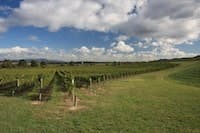The National Corn Growers Assn. (NCGA) and the Water Environment Research Foundation (WERF) announced the completion of the Agricultural Best Management Practices Database at the American Water Resources Assn.’s Annual Conference on Water Resources.
Along with other project sponsors, such as the United Soybean Board (USB), the organizations developed the database to create a centralized repository of agricultural best management practice (BMP) performance studies related to water quality in agricultural areas.
“The goal of the database is to provide farmers, agricultural advisors, planners and consultants with information that enables them to implement cost-effective water quality improvement solutions,” said NCGA Production and Stewardship Action Team Chair Brent Hostetler. “Currently, many conservation practices and pollutant reduction measures are being voluntarily adopted. However, until now, the effectiveness of various practices has been uncertain due to the limited availability of comprehensive and comparable field-scale data. The Agricultural Best Management Practices Database addresses this problem by providing a comprehensive set of monitoring and reporting protocols and a clearinghouse for collecting, storing, and evaluating agricultural best management practice performance information.”
“WERF appreciates the proactive approach that NCGA and USB are taking with creation of the Ag BMP Database,” said WERF Research Program Director Theresa Connor. “Having a clearinghouse of meta and performance data for agricultural conservation practices will assist both growers and watershed managers make more informed decisions on the impact of their conservation practices on water quality, and as information is available, costs and crop yield. Bringing the many available, diverse research projects into one data system can ultimately help growers more effectively implement conservation practices and researchers share information.”
The database includes performance data and metadata that document the many variables that affect BMP performance. These variables include geographic area, field conditions such as soils and slopes, tillage and nutrient management practices, and the existence of buffers, constructed wetlands, and other edge-of-field practices. The database’s initial release focuses on row crops, particularly corn and soybeans, and its primary analytical focus is on phosphorus, nitrogen and sediment.
Source: National Corn Growers Assn., Water Environment Research Foundation


